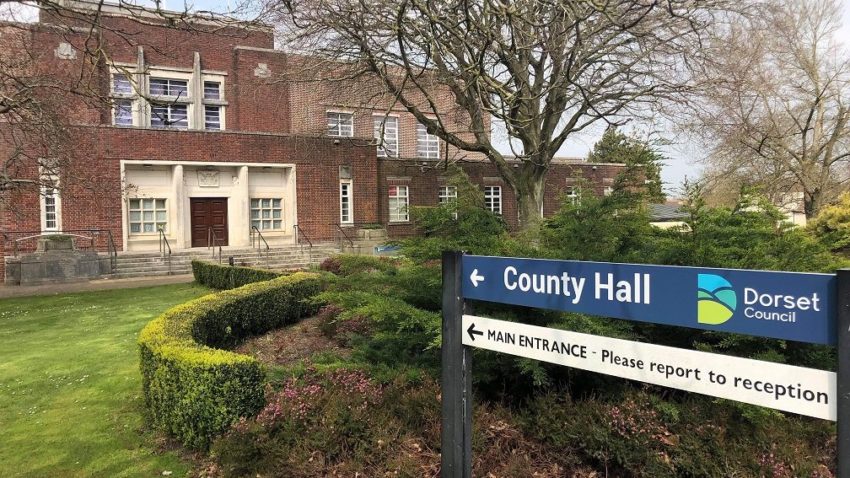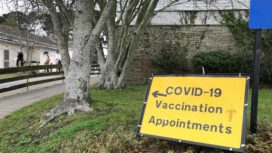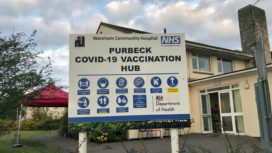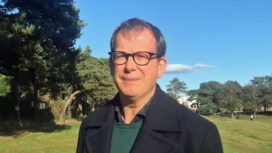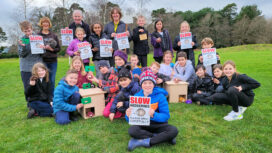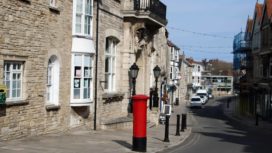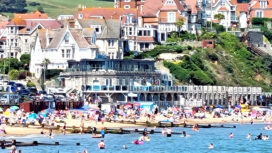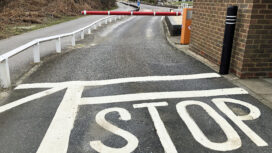Dorset Council has revealed that at the start of the coronavirus crisis, it had to set up its own drive-through facility to supply personal protective equipment (PPE) to care homes in Dorset, when the expected help from central government was not forthcoming. It says that it is still awaiting a national response on PPE.
In the first Cabinet meeting since the lockdown, the councillors and officers discussed its COVID-19 response via its first online meeting, including the local challenge of getting PPE to those who need it.
Government did not provide PPE, as expected
Executive Director at Dorset Council, Aidan Dunn, who at the beginning of the crisis was tasked with the role to coordinate Dorset Council’s plans, explained to council members that when the government did not provide PPE as expected, the council had to establish its own response.
This included sourcing its own items, storing them at a drive-through warehouse where they could easily be picked up and then distributed. In doing this, the council was helped by the military.
Dorset Council says it can distribute to any care provider in its area and while they should continue to order through their normal supply chain, the council can provide PPE if they have less than 48 hours’ worth before their next order arrives from their usual supplier. Aidan Dunn said:
“It’s been a really, really quick and responsive service. It’s been a phenomenal response and it’s continuing. We know we are still in a crisis but we are already planning how we will cope with getting back to normal.”
Estimated 8,000 people in Dorset Council area to get coronavirus
Also detailed in the meeting was the extent of the spread of coronavirus in Dorset. The Director for Public Health Dorset, Sam Crowe said that while the official number of COVID-19 cases in the Dorset Council area currently stands at 238, he estimates that 8,000 people will be infected in the Dorset Council area.
Care homes
Sam Crowe also said one in four care homes in the Dorset Council area have a current outbreak of coronavirus or have had an outbreak.
Other key points on Dorset Council’s response to COVID-19
Schools – Executive Director, Theresa Leavy, said that schools have been “truly amazing” managing the shutdown and the opening up of schools to support key workers. Councillor Andrew Parry , who is responsible for children, education and early help, added his heartfelt thanks.
Vulnerable people – 15,000 residents have been identified in Dorset as needing to shield from catching coronavirus. This includes very young children, adults and families.
Community response – Councillor Laura Miller responsible for adult social care and health, said that the way everyone had worked together to support the vulnerable by getting shopping and picking up prescriptions, had broken down barriers between the council, voluntary organisations and community groups and she wanted that to continue after the crisis had subsided. She added that she wanted all the voluntary groups to know just how much Dorset Council values them.
Rough sleeping – Councillor Graham Carr-Jones with responsibility for housing, said that since the crisis began, 28 rough sleepers had agreed to be accommodated and eight had declined but were being supported. He said that while there had been challenges and ‘interesting’ moments, there were also some really positive stories with people using this opportunity to seek help and some had moved back to their hometowns.
Housing – 85 people had sought help from Dorset Council for emergency accommodation, since the start of the crisis, due to various reasons including unofficial tenancies being ended, family break ups and tensions in domestic situations.
Highways – Councillor Ray Bryan with responsibility for highways, travel and environment said at the beginning of the crisis, highways staff had been redeployed to distribute food and PPE but now roadworks are restarting while traffic levels are low. Buses have had perspex screens fitted by the driver to help reduce the spread of coronavirus. Vehicle movements in Dorset have been down 70 per cent but higher at the weekends, so more could still be done to reduce non-essential travel.
Planning Department – Councillor David Walsh said that the challenge with the planning department was just to continue working as normal, while everything around them changed. All the officers were working from home and assessing applications remotely as best they could. He said that keeping the planning system going, was vital for the economy.
Death registration– In response to the COVID-19 crisis, the council has streamlined the system of registering deaths. Councillor, Tony Alford who has responsibility for customer, community and regulatory services, said that a death could now be quickly registered over the phone with the documents transmitted electronically.
Household Recycling Centres – Councillor, Tony Alford said that the council was keen to get the recycling centres reopened as soon as possible and it was just waiting on government advice to allow a trip to the tip to be allowed as an essential reason to travel.
Libraries – While libraries were closed, there had been an increase in membership as people had sought to borrow digital books and access documents online.
Coronavirus Diaries – More than a hundred people had signed up to the Dorset History Centre’s invitation to keep a regular diary of their experience during the pandemic as a way of recording this period of history.
Business grants – There had been 6,312 applications from businesses for grants of which 77 per cent had been processed, representing £75m.
Excess death planning – Corporate Director, Jonathan Mair said he had hesitated to include the details of the council’s planning for excess deaths in the meeting but felt that the public had a right to know. He said that two facilities had been established in Dorchester and Poole, where up to a 1,000 bodies could be stored in refrigerated conditions. He stressed that this had been set up as part of a worst case scenario. He said: “People should be confident that if we were in that situation, that the deceased and bereaved would be treated with respect.”
Financial situation – Councillor Tony Ferrari with responsibility for finance, commercial and assets said that Dorset Council had already received £10.6m in March from the government to cover its additional costs in relation to the pandemic. He said that a second tranche of £10.4m had been agreed in April. He said that this money just about covered its costs so far and a further similar payment would be required in May to prevent a shortfall.
